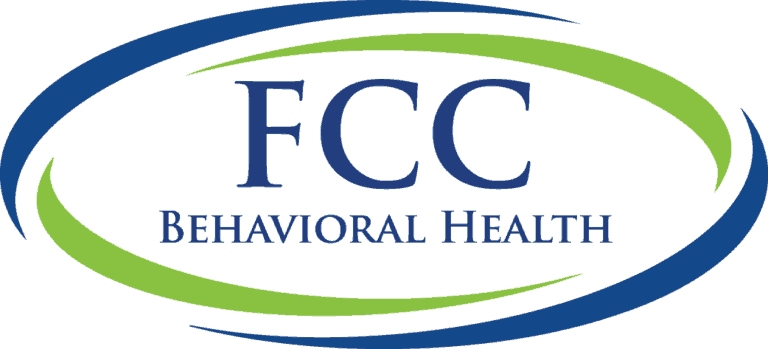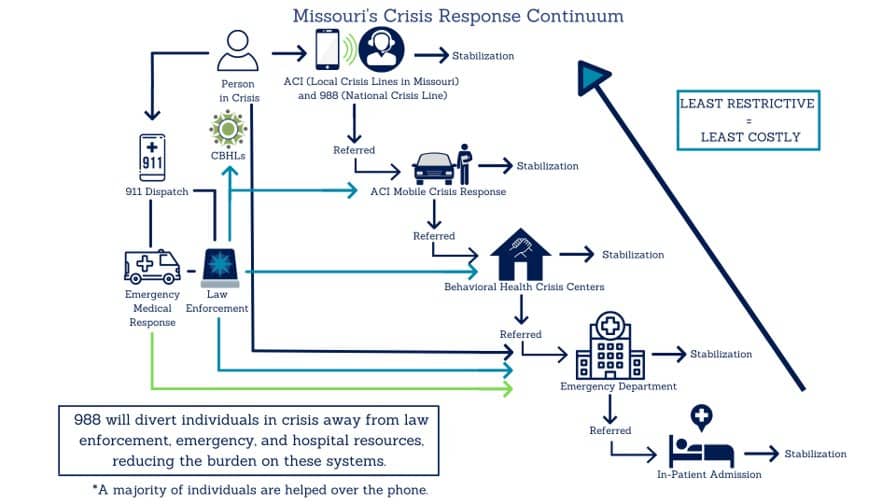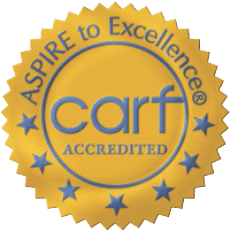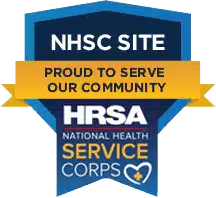Crisis Services
Crisis services include a care continuum that is an array of services to respond during any behavioral health crisis with the goal of providing support in the least restrictive environment. At FCC, our crisis services include our Community Behavioral Health Liaisons (CBHLs), Emergency Room Enhancement (ERE) program, Access Crisis Intervention (ACI) services, and Behavioral Health Crisis Center (BHCC).
Community Behavioral Health Liaison (CBHL)
CBHL offers assistance to law enforcement and the courts by providing better access and resources to those individuals who need behavioral health treatment. The CBHL can screen potential and existing consumers for behavioral health needs and follow their cases to monitor treatment. The CBHL also provides and coordinates training with law enforcement and other agencies regarding mental health to improve services and reduce stigma.
Emergency Room Enhancement (ERE)
ERE offers stabilization services for those in crisis by addressing immediate needs, enhancing overall functioning, and reducing psychiatric hospitalizations. The program also offers intensive case management services. The Care Coordinator coordinates care for the person served by addressing behavioral/physical health issues and basic needs. The Crisis Therapist and Care Coordinators provide the following forms of crisis response: mobile response, walk-in services, face-to-face intervention, and telephone response.
Access Crisis Intervention (ACI)
ACI offers services aimed at the assessment and immediate stabilization of acute symptoms of mental illness, alcohol and other drug abuse, and emotional distress or in response to acts of domestic violence or abuse/neglect. Crisis intervention services consist of mobile response, face-to-face assessments, and telephone interventions. ACI services are offered in Service Area 19, which includes the following seven (7) counties: Dunklin, Pemiscot, Butler, Wayne, Reynolds, and Ripley.
Urgent Behavioral Health Crisis Center (UBHCC)
The UBHCC offers triage, assessment, and immediate resources to stabilize individuals experiencing a behavioral health crisis that are 10 years and older. A behavioral health crisis can be effectively treated in less restrictive environments without delay or denial of service which creates more burden on the individual, law enforcement, and emergency departments. Therefore, the UBHCC will operate as an urgent care model with a multidisciplinary team trained to de-escalate a behavioral health crisis.
Medicare, Medicaid, and commercial insurance are all accepted. We offer a sliding fee schedule for those who qualify and are uninsured.
Clinic Hours:
Postvention
FCC Behavioral Health provides postvention in response to crises in our communities. Postvention is an organized response in the aftermath of a tragic loss, including a suicide, tragic loss, or unexpected death of a child. These services may be provided to any of the following groups: FCC staff members and clients impacted by the event, students or employees associated with the deceased, first responders, facility staff that tend to the site of the death, and any other individuals that request postvention services. The services provided aim to provide education, support, and guidance in dealing with the grief associated with the loss. It also provides an additional screening opportunity to identify other members of our community who may be emotionally at risk.




